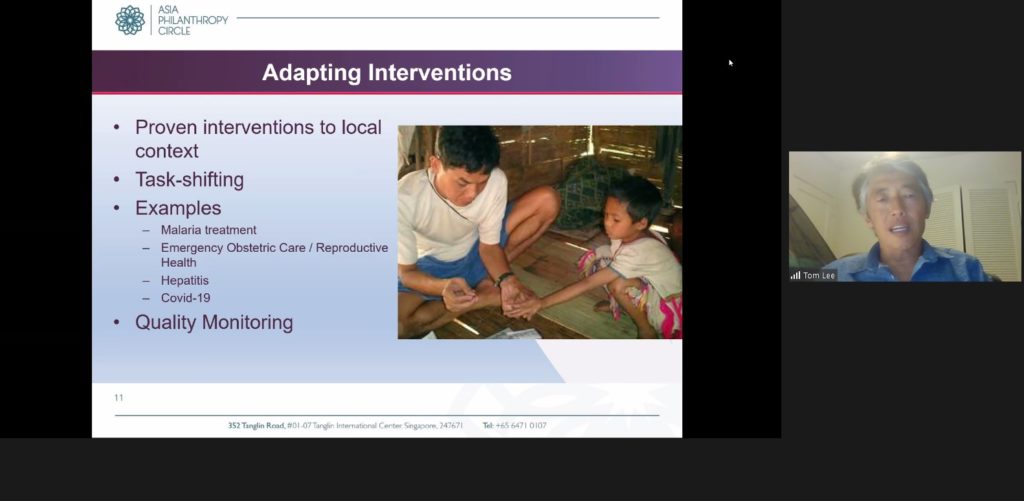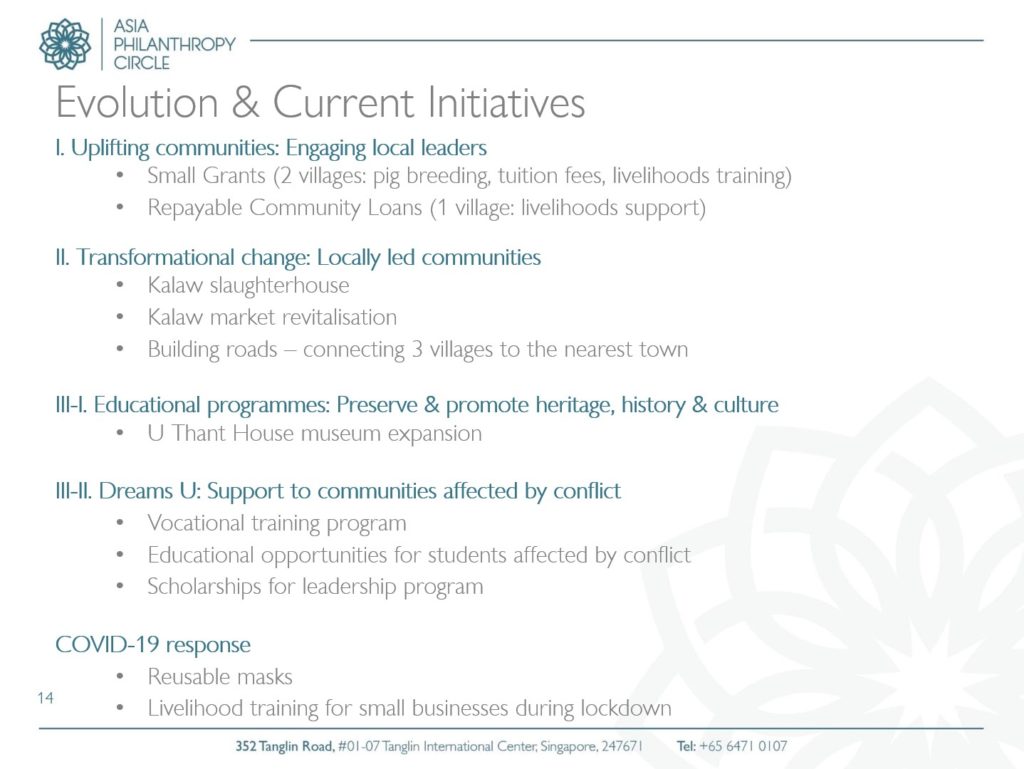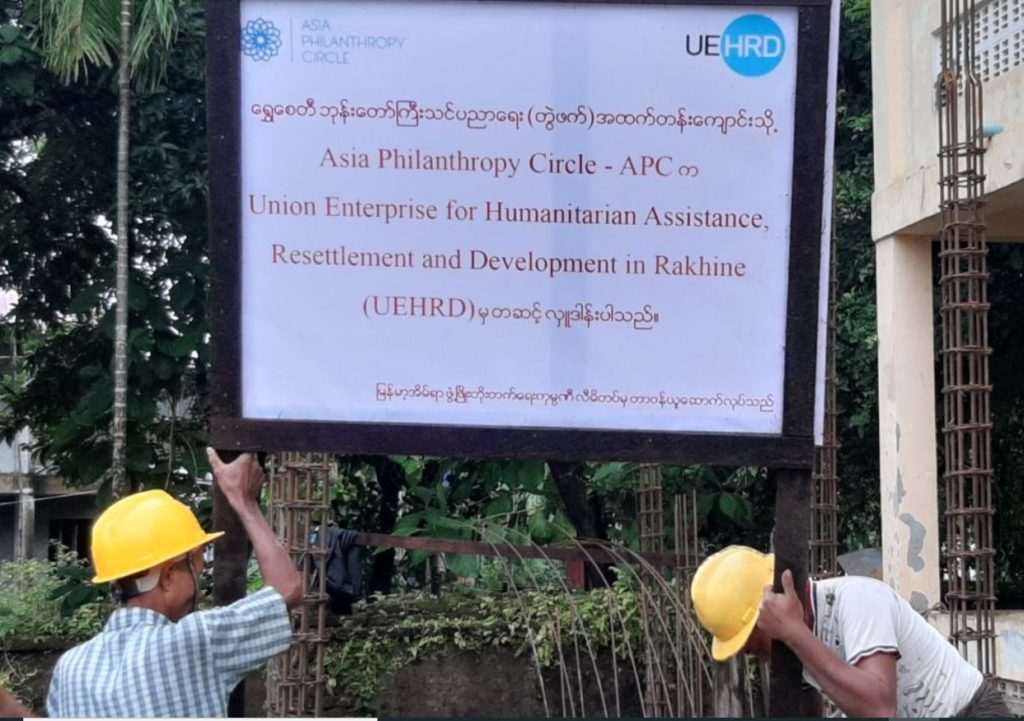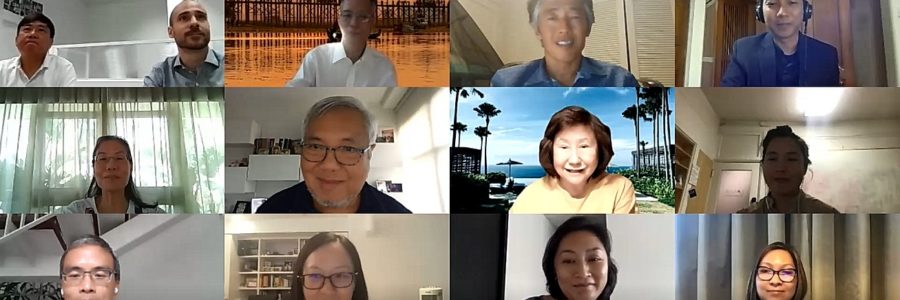by Mark Fiorello
With COVID-19 continuing to influence our ability to both travel and meet in person, APC has been experimenting with new ways to connect members and share insights. In this spirit, APC hosted our first online “Call for Collaboration” on 20 October to showcase APC co-chairman Stanley Tan’s efforts on community development in Myanmar and his long-term plans for =Dreams University.
In his brief opening remarks, APC CEO Laurence Lien noted that the Myanmar Community Development Fund (MCDF) was APC’s first pooled philanthropic fund, and Myanmar is a country where APC and dedicated philanthropists have the opportunity to make a large difference.
Stan Sze, President of B.K. Kee Foundation, shared thoughts based on his 15+ years of working in Myanmar. Stan reflected that when looking at things over a longer time horizon, significant progress has been made in Myanmar’s development and there are many reasons to be hopeful. Particularly noting the potential for philanthropy to act more nimbly in taking calculated risks and supporting novel interventions, Stan stressed the importance of working with local leaders with strong technical expertise. He also shared his experience in working with a variety of local partners, which has allowed B.K. Kee to focus primarily on funding the growth of small, high-potential organisations.

Building on many of Stan’s points, Dr Tom Lee of UCLA Medicine and Chair of the Board at Community Partners International (CPI), shared his perspective based on over two decades of experience supporting health interventions in Myanmar. Tom highlighted the importance of building local capacity rather than working through international NGOs. He also stressed the importance of technically sound interventions that have a direct impact on the quality of health, as well as the need to build the capacity of local organisations to not only deliver medical interventions, but also to build, deliver and monitor programmes. By demonstrating their ability to work effectively, neutral organisations working in areas with ethnic tension or outright conflict can become a trusted partner to multiple actors and to help contribute to long-term reconciliation.
Following both Stan’s and Tom’s perspectives on working in Myanmar, Stanley shared an overview of the philosophy that guides his work in Myanmar, especially in terms of several core principles:
- Understand and respect local perspectives
- Do no harm
- Aspire to be the catalyst rather than the solution
- Acknowledge that community building is dynamic and non-linear
- Work only in communities where you are welcomed
Stanley shared his general motivation for developing =Dreams University is that while creating opportunities for academic education is important, employability is also key. Hence =Dreams University will include a focus on livelihoods and vocational education.

One key local partner for Stanley’s work in Myanmar’s Rakhine state is UEHRD. Nyi Nyein (Nick) Aye, the current COO of UEHRD, shared about UEHRD’s role in coordinating public private partnerships, and its longer-term focus on economic development through business growth, trade, investment and job creation. UEHRD acts as a facilitator, and the current collaboration with APC on =Dreams University and =Dreams Academy at Shwe Zeddy is an example of the type of partnership they would like to cultivate.

In conclusion, Dr Si Thura, the executive director of CPI, provided a brief overview of CPI’s work in several regions in Myanmar. CPI has several ongoing projects in Rakhine State, one of which is the collaboration with APC, UEHRD, and the Shwe Zeddy monastic school on =Dreams Academy. As one initiative under the larger =Dreams University umbrella, this project is intended to provide accommodation, education-related support, and social support to 600 internally displaced students. Stanley added that despite disruptions to the larger plans for =Dreams University caused by COVID-19, he still sees important opportunities to provide meaningful support to displaced children and equip them with important life skills.
In response to questions from members participating in the call, Stanley and his fellow panellists also shared further thoughts on several issues. First, that the need for philanthropists to spend time on the ground decreases significantly over time as they develop relationships with strong local partners. Second, that the large-scale return of Rohingya refugees from Bangladesh is unlikely over the shorter term, although there is anecdotal information of small groups returning informally and there are also large numbers of internally displaced people within Rakhine whose return is also important. Finally, that the =Dreams Academy project with UEHRD, CPI, and Shwe Zeddy monastic school is intended as an initial prototype that can continue to be tweaked until the model is an effective and sustainable one.
To close, Stanley reiterated that he hoped this “Call for Collaboration” would be the start of an ongoing discussion with members interested in community development or in working in Myanmar. Members can either support existing MCDF initiatives or work with Stanley and local partners to co-design new initiatives that address particular community needs.
If you are interested in potentially collaborating with Stanley or his partners in Myanmar or if you would like to present an initiative that you support as part of a future “Call for Collaboration”, please reach out to the APC Secretariat!
For the full session recording, powerpoint and meeting notes, members can visit the Event Resource Page, using the password: myanmar. Please note that all notes and recordings are only for APC members and guests, and should not be circulated externally.

